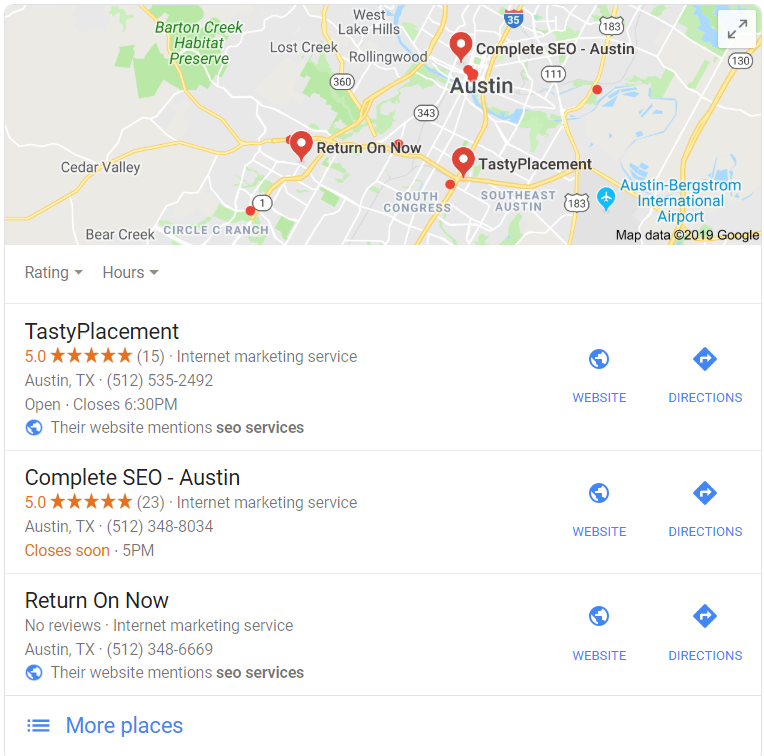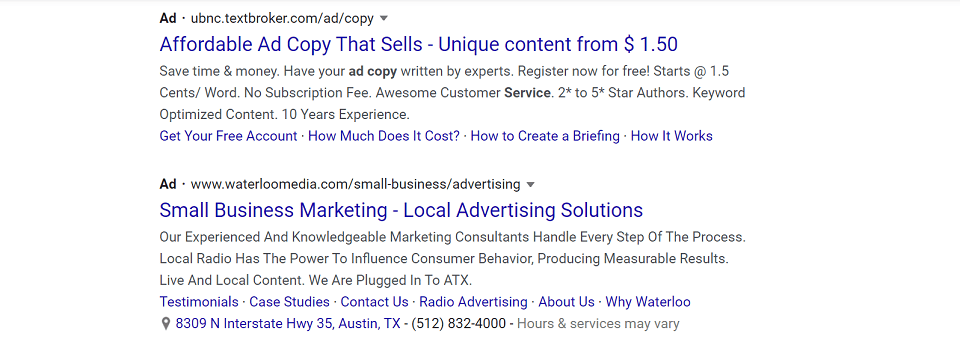If you prioritize your online presence within your overall marketing efforts, Local SEO is a must for any and all businesses who target a local area.
These types of businesses tend to be B2C. Things like electricians, plumbers, florists, restaurants, dentists, and many more types of small enterprises fit this description.
But be careful — digital marketing is one animal, and local digital marketing is a rather different discipline altogether. If you get it wrong, you could stand to waste a lot of precious time and money on the wrong goals and objectives.
Let’s clear the air by reviewing what local SEO is, and how you can capitalize on it for the benefit of your local business.
Local SEO Defined
First, let’s start with a definition of Search Engine Optimization (SEO) itself:
Search engine optimization is comprised of all activities you must undertake to enhance the organic visibility of your website on the search engines. Typical activities are broken into three buckets, Technical SEO, On-page SEO, and Off-page SEO.
Why is SEO important? Well, if you rank well on Google, Bing, and the other search engines, people will find you when they search for your type of products and/or services.
As you can surmise, this is a very important piece of your overall digital marketing success potential.
So, if that’s what SEO is, how does local SEO differ?
The difference comes down to what you are targeting (a national vs. local audience) and where you wish to appear on the SERPs (natural listings vs. the maps pack at the top).
For example, if I want to find a local dog sitting service, I might search for “best dog sitter in south Austin, Texas” or “dog sitters near me.” Dog sitters who are good at local SEO will show up atop the SERPs that Google serves up to me.
Or for a business like Return On Now, you might search for “Austin SEO Services.” And you would see a local pack like shown below. I think you get the picture.


Local SEO works based on keywords as well as the location where a search is made. From a keyword perspective, it’s easy to understand that local modifiers such as “austin” or “boston” will help to significantly reduce the competition you are fending off to rank.
For the maps section, you can show up highly based on a number of factors, two of which are keyword and your actual location.
Ideally, you would want to rank well for your localized keywords on the organic listings, and also highly on the maps. This is an ideal situation, right?
Why Small Businesses Should Care About Local SEO
Most local-facing businesses have a physical location, which comes with some serious disadvantages as compared to national or online-only companies.
For example, a physical location costs money to own/lease and maintain. Inventory, shipping, and other logistical items also require investment of money or time. And small local companies do not enjoy the economies of scale that huge enterprise operations do.
According to Blue Corona, “70% of smartphone users who bought something in a store first turned to their phone for information about a purchase.”
70% of smartphone users! What are you doing to get in front of those users instead of your competition?
If you can win the local SEO battle, you’ll be the first name those users see when they search on their phone. And for those in close proximity, it’s highly likely that they will come into your establishment and consider buying.
Many of these users may call you first as well, so be sure you have an easy way for them to “click-to-call” either on the SERP directly and/or on your mobile-friendly website.
How to Optimize Your Local Ranking
As I mentioned previously, you want to show up highly for both the organic / natural SERPs (Search Engine Results Pages) as well as the local pack.
In the former, you can optimize your on-page for the locale in which you operate. Also be sure to markup your LocalBusiness and address information with semantic tags, as specified on schema.org.
Every local business should establish a Google My Business page for each and every location. I highly recommend you do this yourself or have someone else internally complete the task.
Next, you will have to focus on your NAP (Name/Address/Phone) consistency across all of the major directories online (There are close to 100 directories to target). The goal here is to have your NAP information listed verbatim on all of the directories that the search engines use to verify your location.
This can be done manually, if you have a bunch of time to waste on submitting, waiting, confirming, etc. for each and every directory.
If not, you will want to hire a directory synching service to do it for you. If you need help with such a service, we can help you make it happen.
Benefits of Local SEO
Local SEO can drive some outstanding results for your business. Even if you don’t have a website, you’ll be better off just by showing up in the local pack.
It’s also worth noting that local searches are much more likely to convert to paying customers. The effort or cost of getting yourself into the local pack will pale in comparison to the potential revenue you’ll enjoy down the road.
So get serious about Local SEO today, and you’ll reap financial benefits for years to come.
Tommy Landry
Latest posts by Tommy Landry (see all)
- SEO Guide for Event Marketing Planners: Promotion Done Right - April 25, 2024
- What You Need to Balance When Doing SEO - April 23, 2024
- Why Pool Services Businesses Need Local SEO Visibility - April 16, 2024





